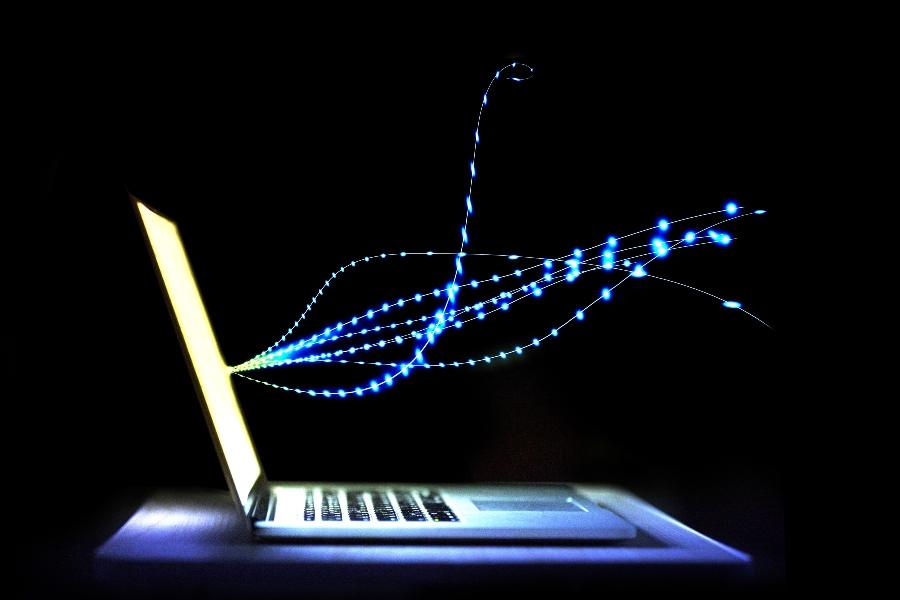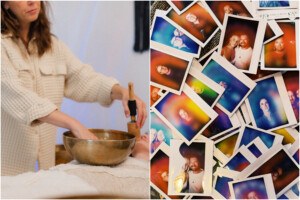Is All This Screen Time Damaging Your Skin?
Local derms weigh in on whether blue light can harm more than just your eyes.

Blue light emitted from devices — which we’ve been using a whole lot more since the coronavirus pandemic hit — can cause skin aging and hyperpigmentation, according to experts. / Photograph courtesy of Getty Images.
If you’re anything like us, you’ve been glued to your screen even more than usual over the last few months. According to local dermatologists, the endless scroll can have unintended consequences.
In recent years, there has been growing concern that looking at our phones and computers for extended periods of time can damage our eyes. That’s because High Energy Visible (HEV) light — commonly known as blue light — can damage light-sensitive cells in the retina, which, in turn, increases the risk of macular degeneration. To give our eyes a break while working and scrolling, some of us have started wearing those trendy, semi-fashionable blue light glasses. (Though, experts say that they aren’t really necessary — it’s better to take screen breaks and other preventative measures.)
But what if the blue light emitted from our devices can harm more than just our vision? Turns out that all that screen time — which has significantly increased during the coronavirus pandemic — can trigger premature skin aging and hyperpigmentation. While blue light is also released from the sun, some studies show that blue light can penetrate skin deeper than UV rays. Not such good news for those of us who have spent a whole lot more time inside and in front our screens these past four months.
Though most of the research is still limited, Nazanin Saedi, dermatologist at Thomas Jefferson University, explains the effects of blue light on skin: “Blue light is part of the spectrum of visible light, but it is a high-energy, short wavelength,” she says. “When skin is exposed to blue light, we know that it causes the formation of reactive oxygenated species leading to DNA damage and inflammation. Eventually, it can break down healthy collagen, which causes skin aging.”
Additionally, the oxidative stress our skin undergoes due to increased exposure to blue light can lead to skin discoloration and hyperpigmentation, according to Margo Weishar, founder of and dermatologist at Springhouse Derm.
So what can you do to protect your skin from your screen? Both experts encourage wearing sunscreen, even when working indoors. Saedi recommends sunscreens that have broad spectrum protection to block UVA and UVB rays, but also protect against HEV light.
“My personal favorites are Colorescience’s Sunforgettable brush-on sunscreen and Super Goop’s Unseen Sunscreen,” she says. Weishar says that folks with melasma should wear sunscreen that contains iron oxide, as it can prevent brown spots from worsening due to blue light exposure.
In addition to lathering up, it’s recommended to utilize the blue light filter or night mode setting on your devices, even during the daytime, as well as implementing the “20-20-20 rule” to help prevent eye strain. Literally, give yourself a break — that Zoom happy hour can wait.
Want to hear more from us? Join Be Well Philly at:
FACEBOOK | INSTAGRAM | NEWSLETTER | TWITTER


